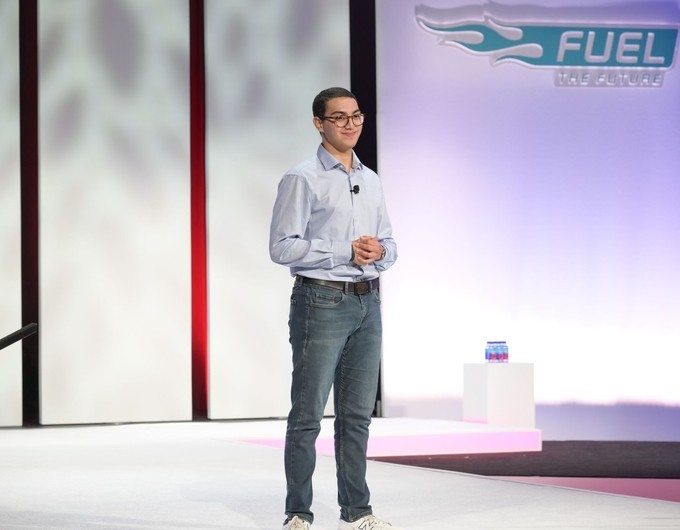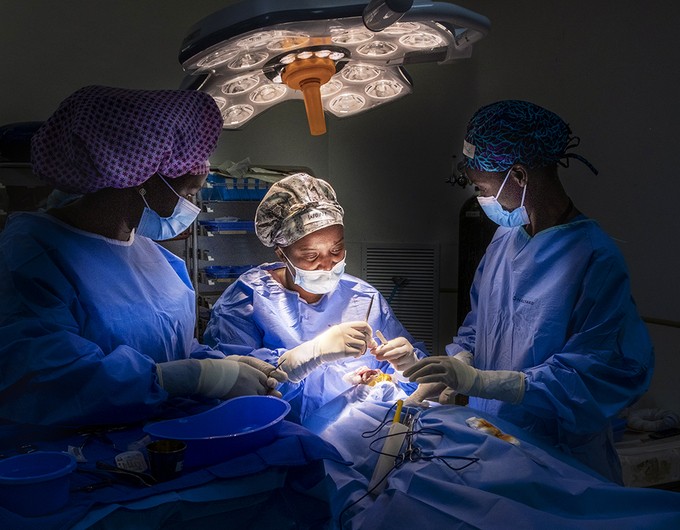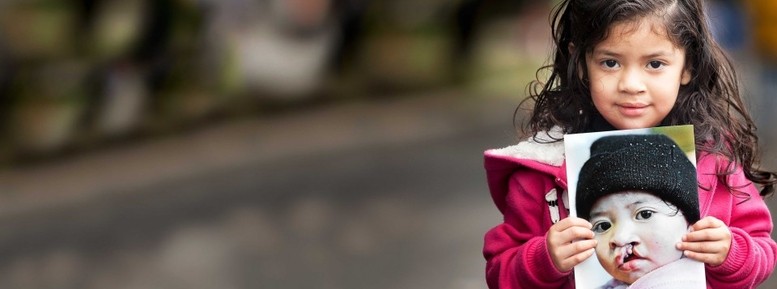Dr. Gordon Wood, a Canadian-based anesthesiologist, has been volunteering with Operation Smile for years.
Through his other humanitarian efforts, Gordon learned about Operation Smile and decided to volunteer.
“One of my colleagues had worked with Operation Smile and his enthusiasm motivated me to volunteer, as well,” he said.
We recently caught up with Gordon and learned about what inspires him to keep changing lives around the world.
Q: What inspired you to volunteer with Operation Smile?
Dr. Wood: “After 20 years of clinical practice, I realized that if I didn’t show up to work, someone else equally competent would take my place. I began to question if I was really making a difference. So I started to look for opportunities to volunteer my time and skills working in situations where there may not have been anyone else. I did some teaching in Rwanda and in the West Bank of the Palestinian Authority and some clinical work in Haiti. One of my colleagues had worked with Operation Smile, and his enthusiasm motivated me to volunteer as well.”
Q: Why do you feel the responsibility to take care of these children?
“I have traveled extensively throughout the world since I left high school, mainly in developing counties. Very early I realized that I live a very privileged life and that the vast majority of the world’s people aren’t guaranteed the basic needs that I take for granted. The children that Operation Smile serve deserve the basic medical and surgical care that is needed to repair their cleft lip and cleft palate. It is a simple and relatively inexpensive treatment that can change a child’s life profoundly. I wanted to do my little bit in making this happen for the children I encounter on Operation Smile medical missions.”
Q: Is there a particular moment or patient from a medical mission that will stay with you forever?
“My first medical mission was a “mega-mission” in Guwahati in northeastern India. The first day of a medical mission involves screening patients to ensure that they are appropriate candidates for surgery and are medically fit for the procedure. Because it was a large medical mission, more than a hundred patients showed up with various members of their families for the first day of screening. It was an unforgettable sight to see so many children with cleft conditions all in one place and to walk past these hundreds of people who had come so far and who had such high hopes. It was only then that I realized what I had come for. I have the same experience on every medical mission on evaluation day, but the first time was the most intense.”
Q: Why is early surgical care a critical need?
“Early correction of a cleft palate allows speech to develop normally. If left unrepaired for too long, these children will never be able to speak normally even if a late surgical correction is attempted. In addition, these children become better nourished once the palate is repaired, especially very young children who cannot efficiently breastfeed or take nutrition from a bottle. Malnourished children are susceptible to all sorts of medical problems, especially if they are in families with limited resources and no access to basic health care. An unrepaired cleft lip does not lead to as significant medical problems as cleft palates, but these children and their families can experience significant psychological distress due to the condition. Early repair of a cleft lip helps these children to fully integrate into their communities.”
Q: From your perspective, describe the three biggest challenge or barriers to care for patients in countries where you have worked.
“The biggest barrier to medical care for children in places where Operation Smile operates is lack of money. Medical care can be bought in most developing countries, but the majority of people don’t have near enough money to pay for even the most basic type of surgery.
“The second most significant barrier is the lack of sufficient doctors, nurses and surgical facilities. The number of doctors per population in some countries where Operation Smile operates is a fraction of what exists in developed countries. And the third barrier would be transportation. Many patients live in rural areas far from cities which have the medical facilities to carry out cleft surgeries and these patients don’t have the resources to travel to where medical care is available.”
Q: If Operation Smile didn’t exist in places you have worked, what would those patients do?
“The vast majority of patients in countries where I have worked would not have their cleft condition repaired if it were not for Operation Smile. The proof of this is the number of older children and sometimes adults up to 60 years of age and older who come to Operation Smile to have their cleft repaired. If there was an alternative to Operation Smile, then we would not see these older patients on our medical missions since they already would have been taken care of.”
Q: How has volunteering with Operation Smile impacted you professionally and personally?
“Volunteering with Operation Smile has given me more satisfaction in my professional life. It allows me to do some of the things that motivated me to go into medicine in the first place. It has made me technically a better pediatric anesthesiologist. On a personal level, I love meeting and working with the volunteers from all around the world, and I have a better understanding of their different lives and cultures. These medical missions reinforce that people are pretty much the same wherever they come from and breaks down stereotypes we sometimes have.”
Latest Stories

A Former Patient, Aymane Now Shares His Story

What is Operation Smile's Nutrition Program?

